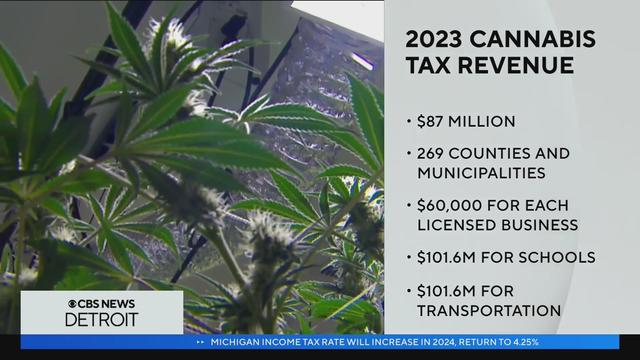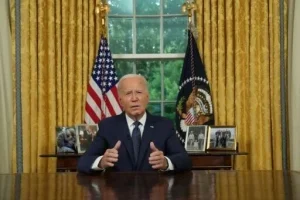Ninety-nine cities, 30 villages, 69 townships, and 71 counties will receive payments from the Marijuana Regulation Fund. Each eligible municipality and county will receive more than $59,000 for every licensed retail store and microbusiness located within its jurisdiction.
In Hazel Park, the city has 10 licenses and is receiving more than $590,000.
Edward Klobucher, the Hazel Park City manager, said it’s been beneficial to the city of Hazel Park and its taxpayers to receive these additional funds from adult-use marijuana. He said they will use the funds to help cover the $1 million increase in the cost of their employee pension program.
Klobuchar said with the marijuana money, they won’t have to raise taxes or cut services to cover the cost. Each municipality can use their funds however they see fit. The money for Michigan’s Marijuana Regulation Fund was collected from 737 cannabis licenses in the 2023 fiscal year. Along with the $87 million in disbursements, the marijuana regulation fund also sent more than $101 million to the school aid fund for K–12 education and another $101 million to the Michigan Transportation Fund.
Meanwhile, in Missouri, the Missouri Veterans Commission will likely receive about $19 million from marijuana sales revenue before the current fiscal year is over in July, a House committee was told this week.
Next year, it will be $22 million, she said, if the governor’s budget recommendations are approved.
Since Missouri’s marijuana sales began in 2019, the state has collected more than $150 million in revenue from taxes and program fees, according to a presentation Moore shared with the committee.
The division has received nearly $50 million to cover its operating expenses, as the presentation shows.
After expenses, the constitutional amendment that legalized medical marijuana in 2018 mandated that revenues from medical sales go towards the Missouri Veterans Commission. To date, nearly $40 million in medical marijuana sales revenue has gone to the commission, including $13 million this year.
The revenue roadmap is a bit different for the adult-use marijuana program, and it’s defined in Amendment 3, which was approved by voters in November 2022. After paying operational costs, the next draw on the fund is expenses incurred by the court system for expunging certain marijuana offences from people’s criminal records.












